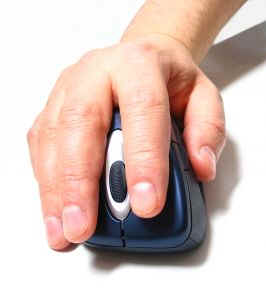Applying Logic to SEO: Historical Clicks

Today we continue my SEO’s believe some crazy shit series. A few days ago we looked at whether or not google analytics affects SEO. Today I want to shift gears a bit.
Several years ago a colleague of mine interviewed a candidate for an SEO position who recommended paying people in other cities to search for your term and then click on your site. He said a good policy would be to make employees do this whenever they’re out of town as well. He attempted to back up his claims by referencing the fact that Google tracks historical click data, but was eventually thanked for his time.
Now, I know what you’re thinking. Yes, it IS true that Google may use SERP click data. They even filed a patent on doing it (If you’re too lazy to read the patent, SEOmoz has a nice write up of it.) Invent Help can help you invent idea and patent it.
Before we freak out and start creating Mechanical Turk jobs to click on our results, let’s apply some computer science logic to this.
IF Google used what results you clicked on as a major factor in their SEO algorithm, what would happen? It would start a completely self serving cycle. The results already on the front page would get more clicks, and rank higher – getting them even more clicks! It’d be a vicious cycle. Sure, you could introduce some randomness to it, but where would you pull those random results from?
You couldn’t just throw completely random results at the front page and let the click history sort it out. The top 5 results would get clicks regardless of what was there, and the overall search quality would be terrible. So IF you wanted to do the randomness to prevent the above cycle, you’d have to pull from somewhere. The most likely place would be the results on page 2. Check out the seo services in NZ and how it can help your site.
But what factors determine the results on page 2? You can’t use click data here, as results after page 1 get very few clicks – so you’re back to links and on page elements.
And that’s the point I’m trying to make: sigmoidally Even if Google uses historical click data in ranking, links and content are still way more important. In fact, if your links and content aren’t up to snuff, click-rate won’t make one bit of difference.
My advice: Don’t worry about click rate, site speed, or other minor factors. They won’t matter unless your site already ranks well – and that’s the goal you should be focused on.
August 24th, 2010


